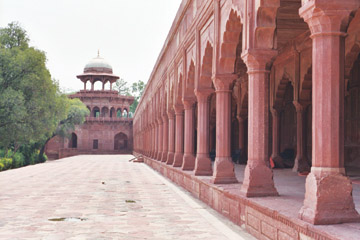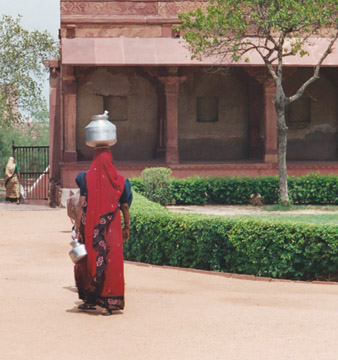Lessons From Abroad: Vergets Voyages

August 28, 2003
Summertime is a great opportunity to travel, work, take up a new hobby, and catch up in classes. Kory Vergets, the new Photo Editor of The Mass Media spent his time doing a little of everything. Working with Cross-Cultural Solutions, an organization that bills itself as “an alternative to the peace corps,” he spent six weeks in India teaching English and working to explain the issues of western economic styles and basic principles of ecology. Although he’d been back for a month before I spoke with him, Kory says he feels like he still needs to process his experiences overseas.
Vergets gained six credits for his efforts, the trip being academically equivalent to an international relations internship, he only attended originally because it was part of his girlfriend’s graduate program requirements. However, he came away with an experience that is still affecting him though he is back surrounded by school, friends, and family.
It started with a trip to the foothills of the Himalayas by train and car, 6,000 feet above sea level. Four hours north of Delhi, Vergets worked six days a week teaching English to sixth-,seventh-, and eighth-grade students and math to eighth grade students in the mornings. After that it was off to businesses like hardware stores and novelty shops trying to describe and incorporate business practices such as store layout and organization or using garbage cans instead of tossing refuse into the streets.
On the weekends, Vergets and his girlfriend would make to different cities, hiring a car to take them all over India. “Parts of it were amazing but at the same time, it was totally a reality check when you see people performing such intense manual labor. We would consider manual labor to be landscaping or construction but even the construction workers have machines.” Vergets remembered watching the construction of a building with something like awe as the workers brought huge bags of rocks up and down the stairs.
And then there were other feelings. “I felt guilty at times. We had a cook in our staff. I would think about the kids in my class. I was in their country and I was in their home but I couldn’t relate to them completely.” However, he concludes, “Being there exposed me to it but I could not be them because I was not them.”
What made one of the deepest impressions was the state of public education in India, which differs from public schools in the U.S. since Indian public schools charge tuition. Many of the teachers did not teach and compared to most of the population, they made an excellent salary. Inequality in education was an issue as well. “They would pick out the best students in class and pay attention to them. The poorer students were punished for not understanding. They would be humiliated or physically punished for it.”
Memorization was encouraged while questions were discouraged. Vergets admits to feeling frustrated by the fact that it took five weeks for him to see much of a response from his students. Unfortunately, they had to learn from translations via an interpreter, a task that makes learning the tricky ins-and-outs of conversational applications nearly impossible.
Yet, not all his time was spent in serious study. Having visited the Taj Mahal and numerous temples, and sampled local delicacies, he also went hiking where he found cow bones, upon which he proceeded to demonstrate his skills as a drummer. Unfortunately the locals didn’t take too kindly to that, as cows are considered sacred in India. But the highlight of his Asian tour were the monkeys he tried to catch who, in turn, spat at him.
Vergets encapsulated the experience as saddening, amazing, and awakening. The exposure to another culture has left him with a greater appreciation of what he has and sobering knowledge of what most of the world does not.












































































